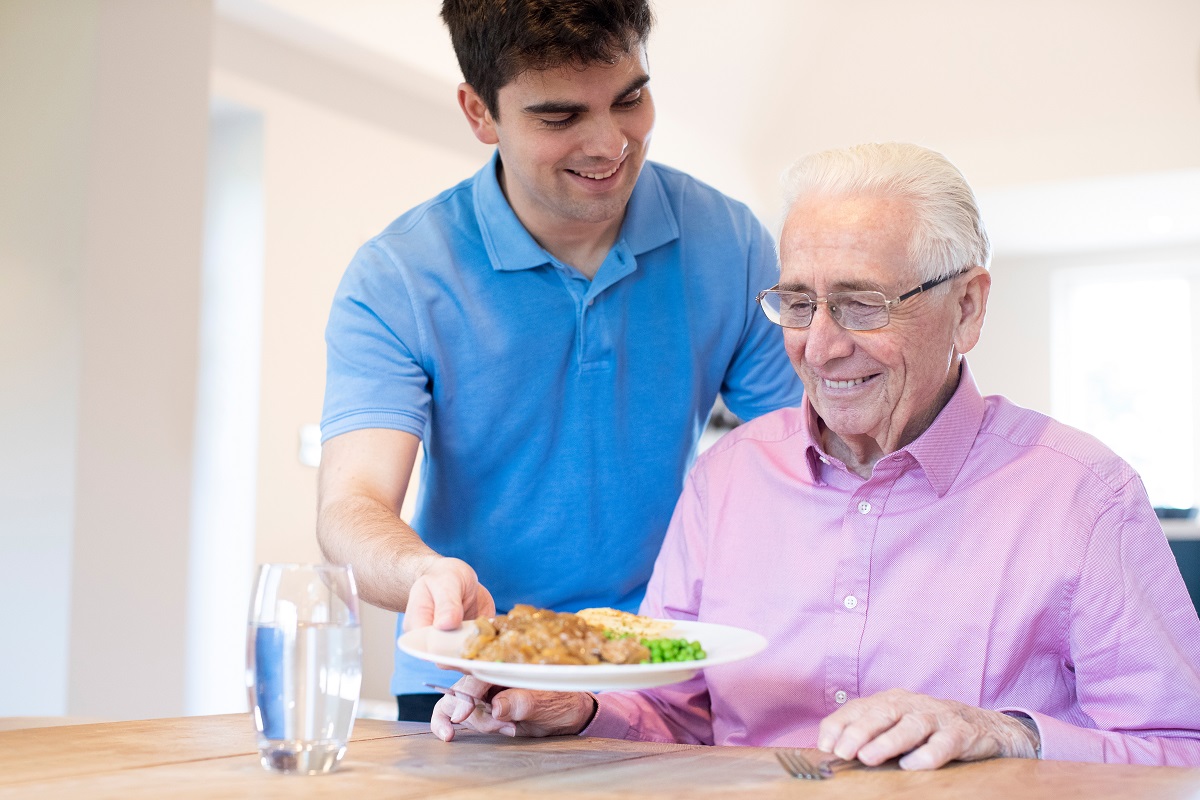He’s been a passionate dementia campaigner since losing his beloved Nan to the condition. Here, astrologer, actor and presenter Russell Grant, 65, shares his dementia journey and reveals the lessons he’s learnt
Nan’s face was always wreathed in smiles, but I feel very sad when I remember the last few years of her life. She was such a big-hearted woman who’d lived through two world wars and given so much to her country. Yet when she developed dementia, I’m sorry to say, she got very little back.
Nan’s dementia emerged in the late 1980s when many people still considered it either a normal part of ageing or a sign of madness. It’s neither of course. Nan had suffered a nervous breakdown in the 1950s and been given ECT (electroconvulsive therapy) treatment which was very fashionable then. Looking back, I’m convinced this could have increased her chances of getting dementia.
Mum and I became her carers (I gave up a job in New York to be with her) and did our absolute best, but we didn’t know much about dementia and nor, it seemed, did anyone else. I don’t remember her even getting a proper diagnosis.
In the end, it was only our instinct and our love for Nan that kept us going. We learnt quickly that it was easier to acquiesce than to argue with her; that it was better for everyone if we tried to enter Nan’s world rather than try bringing her back to ours, but with so little support or understanding, it was desperately hard, particularly when she had angry, nasty outbursts that were so unlike her… Once, Mum calling the GP out close to despair. But when he arrived Nan managed to put on a fairly lucid performance. I vividly remember the doctor saying to Mum; ‘you just want her to be Sectioned so you can go off and have a good time.’
Eventually Nan stopped speaking, she became mute. We managed to find a dementia-friendly care home (the funding process was a nightmare though) and when she passed away, just six months before her 100th birthday we, like so many other families, remained stoic and brave. It took a couple of years for the loss to catch up with me; I then became severely depressed and my weight increased to 27 stone.
After a great deal of soul-searching, I decided to throw myself into finding a cure for dementia because, rather selfishly perhaps, the idea of getting it myself was worrying. But I also wanted to prevent other people experiencing what we had.
Since then I’ve devoted a considerable amount of time to working with dementia charities and campaigns. I’ve become an ardent supporter of Alzheimer’s Research, Dementia UK and the Alzheimer’s Society and I’ve learnt a great deal about dementia. Generally speaking, I’m encouraged to see how much has changed in the 20 years since Nan died; our understanding of dementia has increased and the stigma has lessened. Every day seems to bring a little more knowledge.
As for Nan, if I’d known then what I know now, I probably would have done things differently. Do I sometimes feel guilty? Yes of course, but guilt is the price we pay for loving someone. If you don’t feel the guilt, then maybe you didn’t also feel the love.
Russell’s Three Golden Rules
• Stop pretending
Denial is the enemy of the carer. I find it very frustrating when people refuse to accept their loved one might have dementia. I know it’s usually because they’re frightened or embarrassed, but there’s so much support available now that it’s far easier in the long run to be informed and prepared for what’s coming, than to bury your head in the sand.
• Apply pressure
When Nan was very ill I wrote to the Government saying; ‘You need to take control of this or you will be facing a pandemic in the not too distant future.’ More than two decades later how prophetic those words turned out to be. The social care system is in crisis and the more pressure we put on people in power, local councils, social services and MPs the better. If you keep suffering in silence nothing will get done.
• Be creative
As our understanding of dementia increases we realise how enjoyable creative arts can be, not only for people with dementia but for their families too. Whether it’s listening to music, dancing, painting or colouring. I’m currently developing a dance and music project with Doctor Tara Spires Jones, a dementia expert from Edinburgh University, called Don’t Forget to Dance which we hope to roll out next year. There may not be a cure for dementia yet but one of the biggest lessons I’ve learnt is to make the most of the time you have left, and to have fun together while you still can.
SHARE
Explore more



